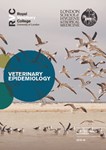Search - News & Events
471 - 480 of 692 results
-
RVC agrees international affiliation with the University of Nicosia
The Royal Veterinary College (RVC) and the University of Nicosia have announced they will be working to deliver two new bachelor degrees in Veterinary Medicine in Cyprus. This new initiative aims to create Cyprus’ first veterinary school. The … -
World first, RVC finds cognitive impairments in dogs with epilepsy
A series of pioneering research studies from the Royal Veterinary College (RVC) into dogs with epilepsy have revealed that: Dogs with epilepsy find it harder to obey commands, are slower to learn new tricks, have spatial memory deficits and are easily distracted. Aversive training methods, such as bark-activated collars, prong collars and verbal punishment are associated with poor trainability and their use should be avoided. Some anti-epileptic drugs (the medications commonly used to treat seizures) were found to worsen the cognitive impairment of dogs with epilepsy. Dogs with greater exposure to training activities, including obedience classes, agility, and gun-dog training, were found to be associated with higher trainability and have fewer signs of cognitive dysfunction.You can’t teach epileptic dogs new tricks? A series of pioneering research studies from the Royal …
-
Professor Joanne Webster is finalist in the prestigious BBSRC Innovator of the Year Awards 2018
Joanne Webster, Professor of Parasitic Diseases at the Royal Veterinary College, has received the significant honour of being one of three finalists in the International Impact category of the prestigious BBSRC Innovator of the Year Award 2018. -
Old dogs are now teaching us new tricks
Research conducted by the RVC has identified that the emotional and physical connection between dogs and their owners is even more powerful than previously understood. -
Commonwealth Scholarship scheme allocates two prestigious scholarships to the RVC's MSc in Veterinary Epidemiology
Two Commonwealth Shared scholarships are to be awarded exclusively to candidates on the MSc in Veterinary Epidemiology course, for study beginning in the academic year 2018/19. -
Hopes to improve practise after first systematic review of the effectiveness and safety of anti-epileptic drugs in cats
Researchers from Ghent University (UGhent), Austria Veterinary Medicine School (Austria VetMed) and the Royal Veterinary College (RVC) have found that testing anti-epileptic drugs’ effectiveness and safety for cats has been generally subpar, worse than what was formerly reported in dogs.Researchers from Ghent University (UGhent), Austria Veterinary Medicine School (Austria VetMed) and …
-
RVC student Hatti Smart wins national award for promoting diversity and equality
Hatti Smart celebrates winning the NUS LGBT+ Higher Education Award Harriette (Hatti) Smart, a student of the Royal Veterinary College, has been nationally recognised for her tireless work in promoting inclusion, equality and diversity by … -
Jordan University for Science and Technology collaborates with RVC and international partners to tackle the spread of disease in the Middle East
For the past two years, the Royal Veterinary College has participated in an international project to improve public health in the Middle East and tackle potential biothreats. This has seen the UK’s leading veterinary school, RVC, twinned with the Jordan University for Science and Technology in Irbid, Jordan, to enhance the delivery of veterinary education and foster collaboration between European and Middle Eastern scientific communities. -
RVC research sheds light on predator/prey movement
Superior athletic capability gives predators the edge at high speeds, but low speed maneuverability favours prey survival. -
RVC research sheds light on predator/prey movement
Superior athletic capability gives predators the edge at high speeds, but low speed maneuverability favours prey survival – says new Royal Veterinary College (RVC) research In the battle between predator and prey, the victor can be decided by the …






.jpg?v=638497412984389645)


